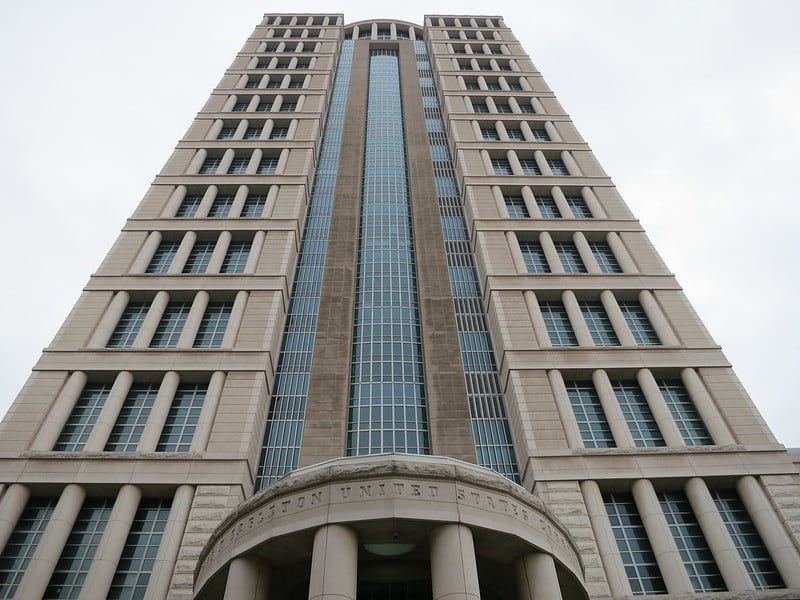Oral Argument Recap: Reid v. Doe Run Resources Corp.
On Tuesday, the Eighth Circuit heard oral argument in Reid v. Doe Run Resources Corp., an ad hoc interlocutory appeal limited to the question of whether the district court should have abstained in that case based on foreign policy concerns. The facts of the case are described in a prior post. This post summarizes Tuesday’s…
Continue ReadingEighth Circuit Weighing Adoption of Foreign Relations Abstention
The Eighth Circuit will soon hear an interlocutory appeal to consider permitting abstention based on foreign relations concerns. In Reid v. Doe Run Resources Corp. (as the case is captioned on appeal), Peruvian citizens allege they were seriously harmed as children by toxic substances emitted by a metallurgical refining complex in Peru and that this…
Continue ReadingFederal Court in Nevada Allows Ethiopia Bribery Claims to Move Forward
In a fascinating decision, the District Court for the District of Nevada (Judge Richard Boulware) recently allowed civil RICO claims to proceed against a Nevada resident based on bribery in Ethiopia, while dismissing claims against Ethiopian government entities under the Foreign Sovereign Immunities Act (FSIA). Fremichael Ghebreyesus v. Federal Democratic Republic of Ethiopia not only…
Continue ReadingThoughts on the Petitioner’s Brief in Great Lakes
In a prior post, I surveyed the facts, procedural history, and potential significance of Great Lakes Insurance SE v. Raiders Retreat Realty Co., LLC, an upcoming Supreme Court case about the enforceability of choice-of-law clauses in maritime insurance contracts. In this post, I offer some thoughts on the brief filed by the petitioner, Great Lakes Insurance…
Continue ReadingSmagin‘s Surprises
Last week’s decision in Yegiazaryan v. Smagin was surprising in a number of respects, from the line-up of the Justices to the possible shift it signals in the presumption against extraterritoriality.
Continue ReadingDiscovery and Immunity: LIV v. PGA
The U.S. legal battle between the PGA Tour (Tour) and the upstart rival LIV Golf continues to revolve around discovery. As regular TLB readers know, LIV Golf is a new professional golf tour that competes with the PGA, in part by luring PGA players to play in LIV tournaments. LIV is financed by the Public Investment…
Continue ReadingRejecting Comity-Based Abstention in Human Rights Cases
Defendants in transnational human rights cases may seek dismissal on a great many bases—so many, in fact, that it can be hard to keep them all straight. One growing source of confusion is the argument that a case should be dismissed based on “comity.” The problem is that comity isn’t a single doctrine. But because…
Continue ReadingAnother Court Rejects Chinese Data Privacy Law as a Bar to U.S. Discovery
A second U.S. decision has held that China’s Personal Information Protection Law (PIPL) did not bar a U.S. discovery request because of an exception in the law for statutory obligations. As previously reported on TLB, a federal court in California held last year that the PIPL’s exception for transfers “necessary to fulfill statutory duties and responsibilities or…
Continue ReadingThrowback Thursday: Blackmun’s Prescient Dissent in Aérospatiale
In Société Nationale Industrielle Aérospatiale v. U.S. District Court (1987), the Supreme Court held that U.S. courts need not treat the procedures set forth in the Hague Evidence Convention as the exclusive or even the primary means for managing discovery of evidence located abroad. Four justices dissented in part in a remarkably prescient opinion authored…
Continue ReadingA Primer on International Comity
The Supreme Court in Hilton v. Guyot (1895) famously defined international comity as “the recognition which one nation allows within its territory to the legislative, executive or judicial acts of another nation.” That definition is incomplete, however, as comity encompasses much more than the recognition of foreign acts. The Restatement (Fourth) of Foreign Relations Law…
Continue Reading- « Previous
- 1
- 2
- 3
- Next »








